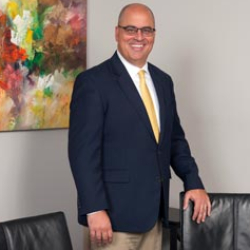The VA Aid and Attendance pension was created in 1951 by Congress and is a pension for non-service related disability.
The program was designed to provide benefits to veterans and/or surviving spouses when they require the assistance of another person to perform activities of daily living, is blind or nearly so, or is a patient in a nursing home.
This benefit is the most widely-known and talked-about benefit as it offers the highest possible monthly payment. There are many eligibility requirements which must be met in order to obtain this benefit.
THE APPLICATION PROCESS
While the application process for special monthly pension can be agonizingly slow – some applications take over a year before the VA makes a decision – the benefit is retroactive to the month after application submission. Having the proper and accurate documentation in place at the time of application (for example, discharge papers, medical evidence, proof of medical expenses, death certificate, marriage certificate and a properly completed application) can cut the processing time in half.
ELIGIBILITY REQUIREMENTS
The VA measures medical need, income & expenses, and assets to determine eligibility. They have very strict eligibility requirements and proper documentation must be submitted with the initial application in order to speed up the application process.
Wartime Service And Discharge
A veteran must meet certain service and discharge requirements to qualify. The veteran must have served 90 days of active duty with at least one day beginning or ending during a period of war. After September 1, 1980, the active duty requirement increases to 180 days. In addition, the military veteran must have been discharged under circumstances other than dishonorable.
Medical Need.
To qualify for any type of pension benefit, a claimant must be 65 or older or be permanent and totally disabled and require the aid and attendance of another. A claimant must show, through medical evidence provided by a primary care physician or facility, that he or she requires the aid and attendance of another person to perform activities of daily living. The Department of VA defines the need for aid and attendance as:
- Requiring the aid of another person to perform at least two activities of daily living, such as eating, medication management, bathing, dressing or undressing;
- Being blind or nearly blind; or
- Being a patient in a nursing home.
Asset And Income Requirements
The financial eligibility requirements of the Aid and Attendance pension benefit address a claimant’s net worth and income. A claimant may have no more than $80,000 in countable assets. Retirement assets are counted, but a claimant’s home and vehicle are not. The VA does not currently look back at the assets past the date of application, so various VA planning strategies may be used for individuals with assets over $80,000. The VA looks at a claimant’s total net worth, life expectancy, income and medical expenses to determine whether the claimant is entitled to any monthly pension benefits.
A claimant must have income that is less than the amount the claimant pays out in monthly medical expenses. Countable medical expenses are recurring out-of-pocket medical expenses that can be expected to continue throughout a claimant’s lifetime.
Conclusion
As stated above, the VA looks at a claimant’s total net worth, life expectancy, and income and expenses to determine whether the claimant should qualify for special monthly pension. Unlike Medicaid, there is no look-back period and no penalty for giving assets away. However, one must use caution when considering a gifting strategy to qualify a claimant for pension benefits as this will cause a period of ineligibility for Medicaid which could be as long as five years. Other Medicaid planning strategies may apply when trying to qualify a claimant for aid and attendance pension.
Time is of the essence for claimants who may be eligible for benefits available through the Veterans Administration. If you know of someone who may be eligible, please give us a call – we would be happy to help!

Sean Patrick Cox is a lawyer. Sean practices in two main areas, family law, and elder law. he has represented clients in complex divorce cases since 1994.





